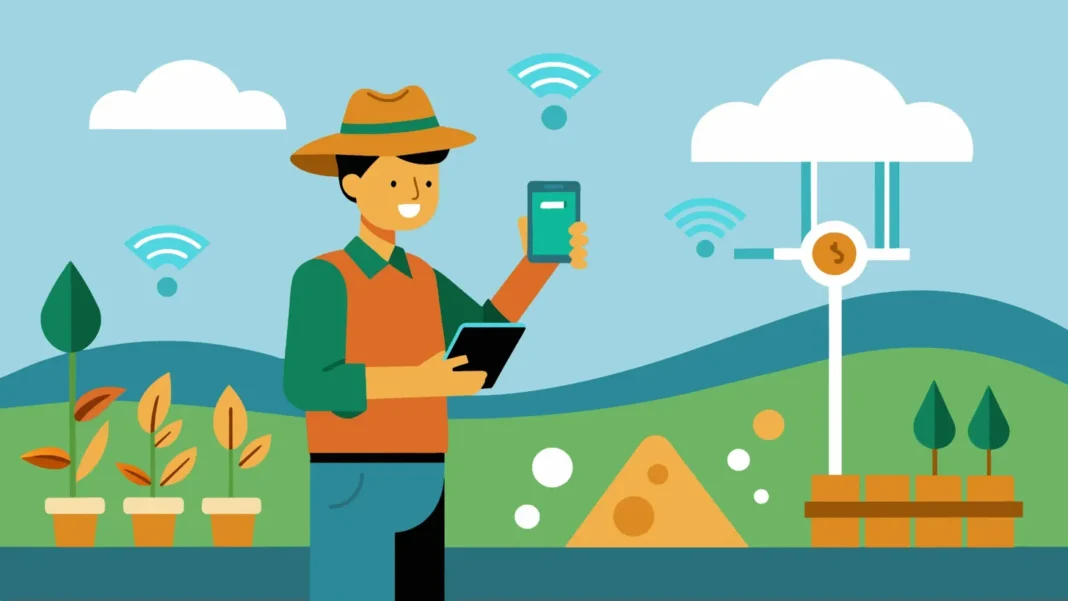Reliable and Transparent Future
By 2050, if global food demand grows as projected, a number of studies have estimated that the global food system will need to produce 70% more food. However, in response to this issue, this sector is consequently evolving and shifting towards the “Digital Revolution” to enhance sustainability, efficiency, and profitability through the integration of advanced technologies and datadriven practices. Artificial Intelligence, real-time data analytics, and sensor systems are driving transformation in traditional farming practices while improving resource management. This transformation is often referred to as Precision agriculture and Smart farming. To tackle the challenges that are preventing the sector from achieving its potential, farmers should plan these strategies in their farm decisions and management that help them to overcome issues related to crop productivity, supply chain management, and environmental impact. Agriculture, with the introduction of digital technology in its operations, has become a successful and efficient sector in the world economy.
Continuous development to bring changes in agriculture, one of the recent groundbreaking advancements is blockchain. Existing agriculture supply chain transactions often lack transparency and traceability, resulting in huge losses for farmers. When it comes to data sharing and interoperable, the substantial majority of traceability systems are frequently antiquated, centralized, and asymmetric. Unlike this, blockchain acts as a decentralized digital platform offering a transparent and secure framework to ensure reliability from farm to table. It ensures keeping a transparent record of every activity securely and transparently without the involvement of third parties, preventing any interruptions or causing changes in any activity without recording it. This article emphasizes the importance and benefits of digitally distributed ledger technologies like blockchain.
Table Of Contents
Role of Blockchain in Modernization of Agriculture Practices
Fair Compensation:
Furthermore, the farmer lack access to the market, which increases their dependency on intermediaries who often claim a substantial portion of farmer’s profits and increase their shares in farmer earning which give significant losses to the farmers and puts them vulnerable to the middlemen’s exploitation, According to the FAO (2022) reports the farmers in developing countries, lose up to 30-40% of their earning due to intermediary cost. So, by eliminating middlemen, blockchain empowers farmers by guaranteeing equitable pay through direct transactions. It establishes the way for a more effective, equitable, and sustainable food system by incorporating technology and Agriculture together.
Resistance To Corruption:
Incorporating blockchain in agriculture operations, from seed sourcing and crop production to its packaging and distribution, not only enables the stakeholders to monitor the journey with immutable records in real time but also builds trust and accountability between farmers and distributors. As a result, this provides a corruption-resistant environment free of fraud and manipulation in the agriculture supply chain. For instance, Cubix Ltd., A multi-award-winning company, introduced agriculture software that incorporates Artificial Intelligence to give realtime insights into encrypted Payment
Processing, data access control, and automated Auditing to maximize productivity and prevent agricultural fraud transactions.
Enhanced Traceability
Blockchain technology has the potential to bring revolution in agriculture for the better by providing a reliable and efficient supply chain system. Blockchain gives farmers decent prices by eliminating the need for third-party involvement, reduces transaction records by automating the procurement procedure, breaks down corruption, and makes the food safer due to traceability, transparency, and keeping the records in an encrypted ledger. However, in those areas where network connectivity is the major constraint in the adoption of blockchain in practice. Addressing this barrier is essential to ensure that blockchain technology is accessible to all. Blockchain emerges as a revolutionary step that can lead the industry towards a sustainable and secure future.


